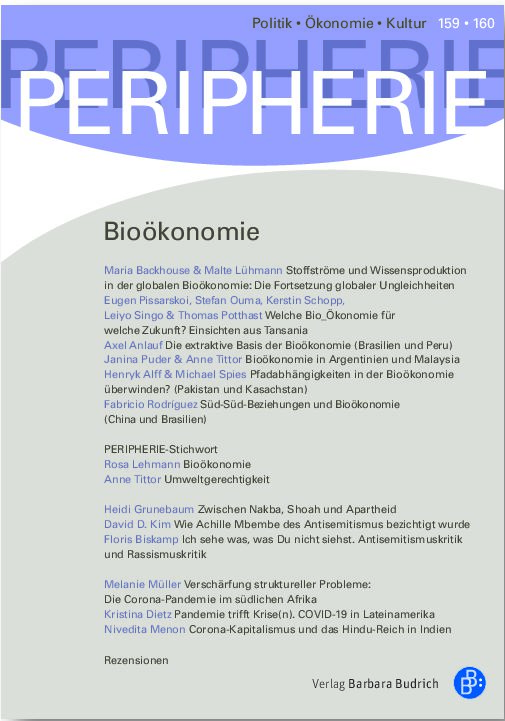Publication: Which Bio_economy for what Kind of Future?
2021
">

Info
With this paper published in PERIPHERIE, we address the debate on the question of how policy strategies dubbed „Bioeconomy“, which have been coined in the Global North, will impact economies in the Global South. We disagree with both, optimistic and critical positions in this debate. The optimists consider bioeconomy as a global win-win strategy supporting a transformation of the agriculture in the Global South to a high-value knowledge-based sector. The critics warn that the market-based solutions of dominant bioeoconomy strategies will entrench the coloniality of markets and knowledge engrained in formally postcolonial North-South relationships. Instead, we aim to paint a more complex picture of the local material realities of bioeconomy discourse, policies and its implementations. Firstly, we argue that the dominant bioeconomy discourse in the Global North hides the ethical controversy of its policy recommendations, which contradicts democratic ideals. Secondly, we provide initial evidence that — contrary to the depoliticized discourse in the Global North — the particular policy arenas addressed by the concept of bioeconomy in the Global South have already been politically contested in local discourses there. We make our point by analysing the case of political discourses in Tanzania, specifically those on land-use and genetically modified organisms. The published version (in German) can be accessed here. The (original) Englisch version of the paper is here.